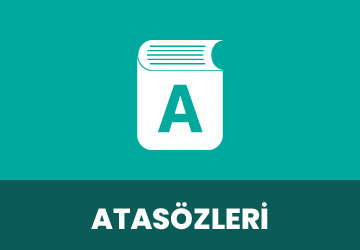
İngilizce Meb Yayınları Yes You Can B1.1 Ders Kitabı Sayfa 114 Cevabı


İngilizce Meb Yayınları Yes You Can B1.1 Ders Kitabı Sayfa 114 Cevabı
2017 – 2018 Eğitim Öğretim dönemiyle beraber pek çok ders ve çalışma kitabı değişti. Değişen ders kitaplarından biri de “İngilizce Meb Yayınları Yes You Can B1.1 Ders Kitabı Cevapları” oldu. Kitabı incelediğimizde ise Devrim ÖZBEK, Hatice KUMRAL, Sevinç ÖRER tarafından 132 sayfa olarak kaleme alındığını görüyoruz. Kitapta görseller ön plana çıkarılmış ve görsel tasarım ise Beyza DİRİK, Zafer HAŞİMOĞLU tarafından yapılmış.
“İngilizce Meb Yayınları Yes You Can B1.1 Student’s Book Sayfa 114 Cevapları“nda önce sorular yazıldı daha sonra cevaplar verildi.
SORULAR
B- NON-DEFINING RELATIVE PRONOUNS
*Some relative clauses are notused to define or identifythe preceding noun butto give extra Information aboutit. Relative clauses which give extra information, as in the example sentences belowmustbe separated bycommas:
My English teacher, who came to Germany in 1986, likes to ride his mountain bike.
The heavy rain, which was unusual for the time of year, destroyed most of the plants in my garden. Einstein, who was born in Germany, is famous for his theory of relativity.
The boy, whose parents both work as teachers at the school, is very hardworking indeed.
My mother’s company, which makes mobile phones, is moving soon from Frankfurt to London.
This summer l’m visiting Italy, where my brother lives.
*There are two common occasions, particularlyin spoken English, when the relative pronoun is omitted:
1. When the pronoun is the object of the relative clause. In the following sentences the pronoun that can be left out is enclosed in (brackets):
Do you know the girl (who/m) he’s talking to?
Where’s the pencil (which) I gave you yesterday?
I haven’t read any of the books (that) I got for my summer holiday.
I didn’t like that girl (that) you brought to the party.
Did you find the money (which) you lost?
Note: You cannot omit the relative pronoun:
a) lf it starts a non-defining relative clause
b) lf it is the subject of a defining relative clause.
For example, who is necessary in the following sentence: What’s the name of the girl who won the tennis tournament?
2. When the relative clause contains a present or past participle and the auxiliary verb to be. In such cases both relative pronoun and auxiliary can be left out:
Who’s that man (who is) standing by the gate?
The family (that is) living in the next house comes from Slovenia.
She was wearing a dress (which was) covered in blue flowers.
Most of the parents (who were) invited to the meeting did not come.
Anyone (that is) caught writing on the walls will be expelled from school.
C- NOUN CLAUSE
A. Noun clauses perform the same functions in sentences that nouns do:
A noun clause can be a subject of a verb:
What Billy did shocked his friends.
A noun clause can be an object of a verb:
Billy’s friends didn’t know that he couldn’t swim.
A noun clause can be a subject complement:
Billy’s mistake was that he refused to take lessons.
A noun clause can be an object of a preposition:
Mary is not responsible for what Billy did.
A noun clause (but not a noun) can be an adjective complement:
İngilizce Meb Yayınları Yes You Can B1.1 Ders Kitabı Sayfa 114 Cevabı












































